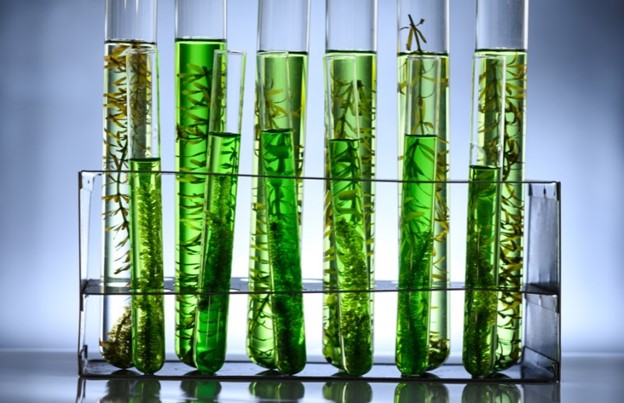Expert Witness – Feedstocks
In the context of the bioeconomy, “feedstock” refers to the raw materials or biomass used for producing bio-based products or biofuels.
Types of Feedstocks
Crops: Certain crops like corn, sugarcane, and soybeans are used as feedstock for biofuel production. For example, corn can be processed into ethanol, a biofuel.
Lignocellulosic Biomass: This category encompasses non-food plant materials, such as agricultural residues (e.g., corn stover, wheat straw), forestry residues (e.g., wood chips, sawdust), and dedicated energy crops (e.g., switchgrass, miscanthus). Lignocellulosic biomass is converted into biofuels and various biochemicals.
Algae: Algae are cultivated and utilized as feedstock for biofuel production (e.g., biodiesel) and other bio-based products due to their high oil content.
Waste Materials: Organic waste materials like food waste, municipal solid waste, and sewage sludge are used as feedstock for biogas production through anaerobic digestion.
Animal Byproducts: Certain animal byproducts serve as feedstock, especially in the production of bio-based chemicals and materials.
Sustainability Considerations
The choice of feedstock significantly influences the sustainability and environmental impact of bio-based processes. Sustainable feedstock sourcing involves evaluating factors such as land use, water consumption, greenhouse gas emissions, and biodiversity preservation, making it a crucial aspect of bioeconomy development.
The Role of Expert Witnesses in Feedstock Litigation
In the bioeconomy, feedstock-related lawsuits can arise due to various factors, including contractual disputes, environmental concerns, regulatory compliance, intellectual property issues, and performance disputes. Here are some examples of common lawsuits involving feedstock and how expert witnesses can assist:
- Contractual Disputes: These may involve disagreements over feedstock supply agreements, pricing, quality standards, or delivery schedules. Expert witnesses with expertise in contract law, agricultural economics, or feedstock logistics can analyze contractual terms, assess performance obligations, and provide expert testimony on industry standards and practices.
- Environmental Concerns: Lawsuits may occur due to environmental impacts associated with feedstock production, such as land use changes, water pollution, or habitat destruction. Environmental experts can evaluate the environmental effects of feedstock cultivation practices, assess compliance with regulations, and provide expert testimony on mitigation measures and best practices.
- Regulatory Compliance: Legal challenges may arise from non-compliance with regulations governing feedstock production, transportation, or processing. Expert witnesses familiar with relevant regulations, such as agricultural laws, land use regulations, or environmental permits, can evaluate compliance issues, provide regulatory guidance, and assist in resolving disputes with regulatory agencies.
- Intellectual Property Disputes: Disputes over proprietary feedstock technologies, genetic resources, or biotechnological innovations may lead to intellectual property lawsuits. Experts in intellectual property law, biotechnology, or genetics can analyze patent claims, assess infringement or misappropriation allegations, and provide expert testimony on technical and legal aspects of intellectual property disputes.
- Performance Issues: Lawsuits may arise from alleged underperformance of feedstock-based products or processes, such as biofuels, biochemicals, or bioplastics. Expert witnesses with expertise in biochemistry, chemical engineering, or process optimization can evaluate product specifications, assess performance data, and provide expert testimony on technical aspects of feedstock processing and product quality.
Lee Enterprises Consulting
At Lee Enterprises Consulting, we offer various services across virtually every facet of the bioeconomy. While serving as expert witnesses represents only a fraction of their responsibilities, most of our 180+ experts are available to provide their expertise as expert witnesses. Like any reputable expert witness, our specialists consistently deliver impartial and unbiased results. They have undergone rigorous in-house training on their role in litigation, understand the Daubert qualification standards, and are versed in the rules of evidence and civil procedure applicable to experts. Before accepting any assignment, we meticulously assess whether the experts possess the necessary specialization and conduct thorough conflict checks. If you need assistance with your feedstock project(s), please contact us.
See: Hiring and Expert Witness in Bioeconomy Litigation
Have some questions?
Not sure where to start?
Let's start a conversation. We're here to help you navigate
the bioeconomy with confidence.

